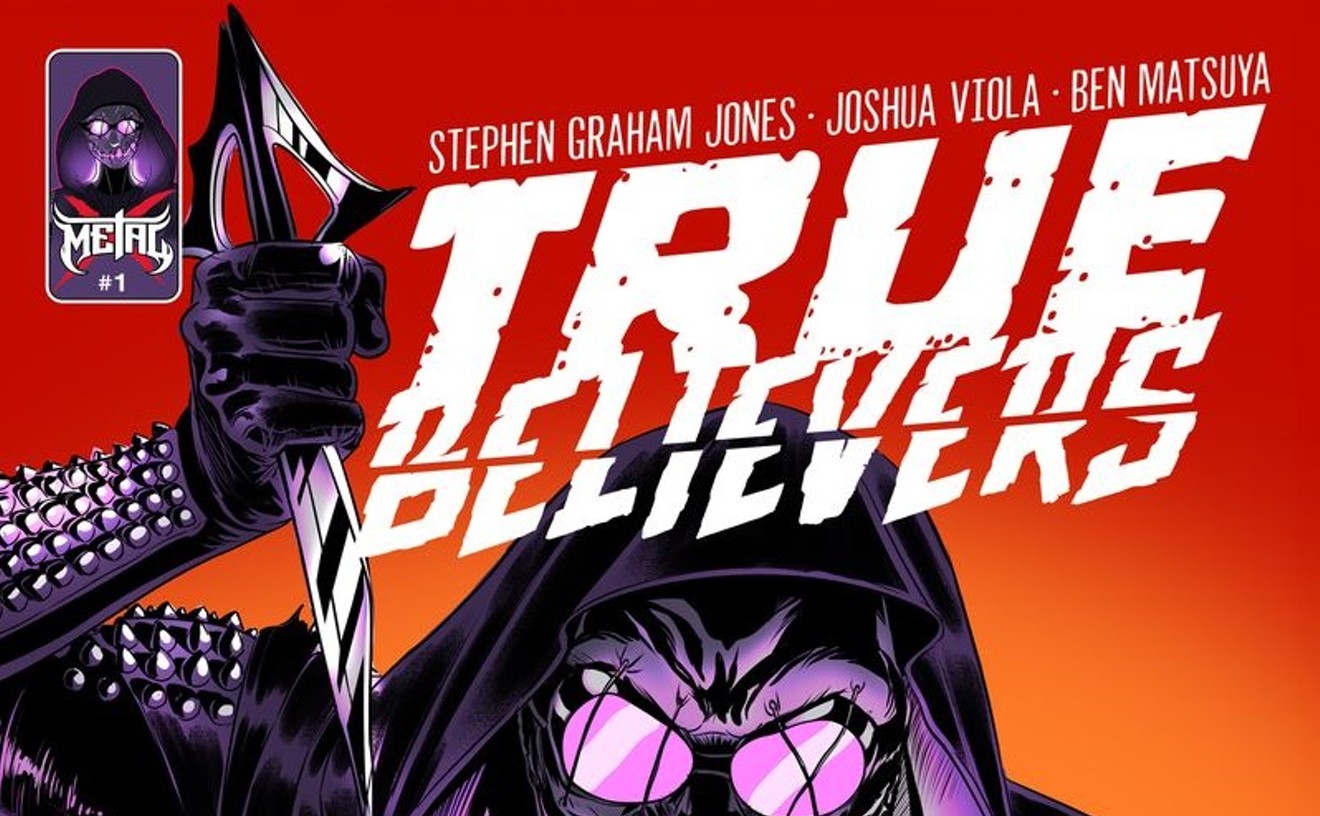No matter how well you thought you knew it beforehand, every show that Phamaly does takes on new meaning and dimension. This is the only company in the country to use disabled actors exclusively — and unlike, say, the National Theatre of the Deaf, it uses actors with every kind of disability, from spinal-cord injuries to blindness, Parkinson's disease to Prader-Willi Syndrome. Urinetown becomes more biting when the people lined up to pee are leaning on crutches; Our Town, a paeon to the joy and brevity of life, gains resonance when Emily, the radiant young bride, is in a wheelchair. The company's talented performers don't just transcend their physical limitations; they have a way of incorporating them into their characterizations. It's amazing how much more colorful the gambling underworld of Guys and Dolls becomes when Nathan Detroit has a limp.
But disabled actors playing the freaks in Side Show? Now you've got something extraordinary, something that crashes into your mind at gale force and blows away preconceptions and separations. Amid the thunderous chords of the first number, "Come Look at the Freaks," the cast assembles, singing and forming a ragged circle at the perimeter of the stage. Although their expressions vary — blank or determined, resigned or defiant — they're all looking at you, calmly assessing: you, sitting comfortably in your plush seat, you whose muscles move smoothly over bone, whose voice emerges from your throat uncracked, and whose body responds unhesitatingly to your barely conscious demands. Perhaps it's you who's the freak, their expressions seem to say, because of what you don't know, and the blind, heedless way you barrel through your life, complaining when the bus is late or your coffee's a little bitter.
Enter two beautiful young women in flaxen wigs sharing a wheelchair. For their play, Henry Krieger and Bill Russell started with the story of Daisy and Violet Hilton, real-life conjoined twins born in 1908 who gained fame as vaudeville performers, then had the sisters rescued from a freak show and set on the road to fame by Terry and Buddy, a couple of impresarios. Daisy, who longs for fame and recognition, falls in love with Terry, and Violet with his friend, but complications arise as the two men contemplate the complexities of a relationship in which moments alone with your beloved are simply not possible. The script doesn't shy away from the obvious questions about intimacy, which are voiced with obnoxious prurience by a crowd of paparazzi. Although the sisters are joined only at the buttocks and hip, the same blood runs through their bodies; you make love to one, you in a sense make love to both. (Novelist Armistead Maupin covered similar questions about deformity and sex with his customary grace and candor in Maybe the Moon, giving his 31-inches-tall protagonist, Cadence Roth, a long and detailed lovemaking session.) Jake, who plays the freak show's cannibal king, leaves the troupe to accompany the foursome, and it soon turns out that he, too, is in love with Violet.
If you take away the fact that the protagonists are conjoined twins, Side Show's plot is pretty conventional: Attractive young women find fame, but love remains elusive. Many of the songs are conventional, too, although some really pop: Jake's "The Devil You Know"; the sisters' "Love Me As I Am"; Terry and Daisy's wistful "Private Conversation." And in the powerful duet "Leave Me Alone," Daisy and Violet angrily and futilely try to spin their wheelchair in two different directions.
Jenna Bainbridge is a lovely, porcelain-featured Daisy, and Regan Linton brings warmth and feeling to the role of Violet. Both of them sing beautifully, alone and together. Nick Ortiz-Trammell, who plays Terry, has a powerful voice, and Mark Dissette's Buddy is very appealing. As Jake, Leonard Barrett makes a huge impact. He's a fine, expressive actor with a gorgeous, supple voice — although I wish he hadn't gone into shirt-tearing rock-star mode for "You Should Be Loved," the big number in which Jake declares his love for Violet and responds to her rejection. (She can't get past his affliction, which is the color of his skin.) These theatrics feel distracting and overdone, though Barrett's passion and singing remain compelling.
Not just the leads are memorable. I found myself constantly scanning the faces on stage, noting how deeply immersed every performer was in the show and how each added a specific presence and energy. In several of the program bios, actors express how very much the company, and Side Show in particular, means to them. By any standard, director Steve Wilson has mounted a first-rate and exhilarating production — aided by Debbie Stark and Cindy Bray's choreography and Scott Lubinski's terrific musical direction — but this is far more than a regular evening of theater. It tells us something about how we live together on this earth we share, and just what it means to be human. How does it feel to be you? we keep silently asking the actors, and they respond by holding up a mirror.











